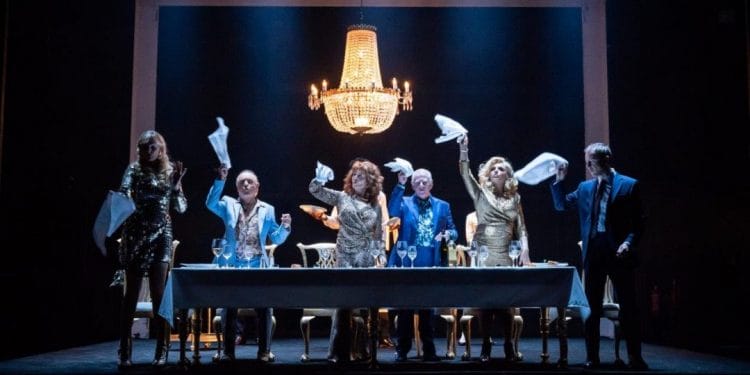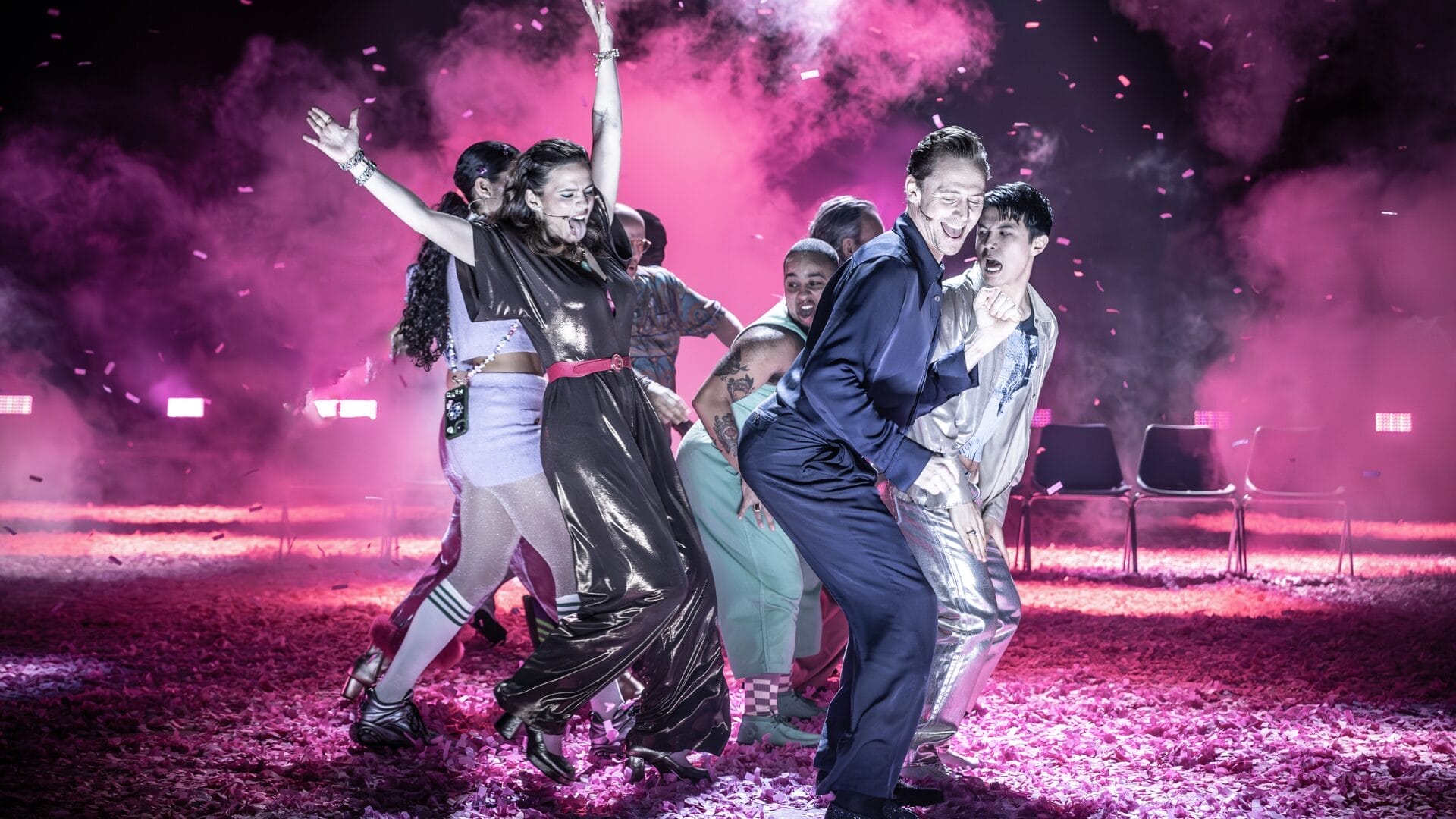 Where the plays of Pinter Five find themselves set in boarding houses and a cramped cab office, Pinter Six, in what has become the trademark of this season, expands not only the stage, but the scope of storytelling to examine the other end of the social scale. In Party Time and Celebration, Pinter mocks and plays with the idea of the elite in great metaphorical discourse, but he could never have known how pertinent both plays would become as they are performed today.
Where the plays of Pinter Five find themselves set in boarding houses and a cramped cab office, Pinter Six, in what has become the trademark of this season, expands not only the stage, but the scope of storytelling to examine the other end of the social scale. In Party Time and Celebration, Pinter mocks and plays with the idea of the elite in great metaphorical discourse, but he could never have known how pertinent both plays would become as they are performed today.
Party Time, which is first in the Pinter Six bill, demonstrates the playwright’s exquisite use of language, the poetic rhythm rising and falling to an almost musical beat. The use of repetition and circular language both heightens the tension, and lightens the mood allowing for comedy moments to interject. As a group gather for a party, it becomes clear that they are the elite, the people who control everything, and have access to exclusive amenities. It’s strongly hinted that out on the streets it’s a different story, and the proletariat need to be suppressed in order for this group to flourish.
It’s not hard to draw comparisons with contemporary events, and neither is it too much of a stretch to imagine us reaching this version of dystopia in the not too distant future. But Pinter penned this more than a quarter of a century ago, which is most noticeable in the misogynistic language which represents the era, while there was an occasional gasp, on the whole the audience were laughing at the male characters, and not with them.
Celebration, Pinter’s final play, is much more of a comedy, and is probably the most accessible of all his work. Its almost clean narrative is far more straightforward on the face of things, but still manages to explore the undercurrents of the relevant themes. The characters here too are wealthy and powerful, but somewhat uncouth alongside it. Two couples are celebrating an anniversary, but their evening is interrupted by a third couple, and the staff of the restaurant.
Jamie Lloyd seems to have found the magic touch in directing both the plays in Pinter Six, Party Time feels suitably oppressive, the characters dressed all in black as sharp shafts of light cut across the darkness of the stage. Celebration is brighter and more vivid, the way the characters ‘freeze’ between scenes creating a sense of the separation.
Both plays are good ensemble pieces, allowing the cast to demonstrate their winning chemistry. John Simm and Celia Imrie are particularly strong, and for Imrie her performance in Celebration alongside Tracey-Ann Oberman, is the highlight of the evening. Abraham Popoola also gives two excellent performances, first as the subjugated Jimmy, and then as the waiter with an extraordinarily well-connected grandfather, with both roles allowing for extensive monologues.
It’s not yet the end of this Pinter at the Pinter season, but Pinter Six and its repertory partner are the highlights so far, perhaps only surpassed by David Suchet’s performance in The Collection. Aside from the striking parallels of both plays with modern society, Party Time and Celebration, in this staging in particular can act as an ideal introduction to Harold Pinter, and can appeal to a much wider audience.























